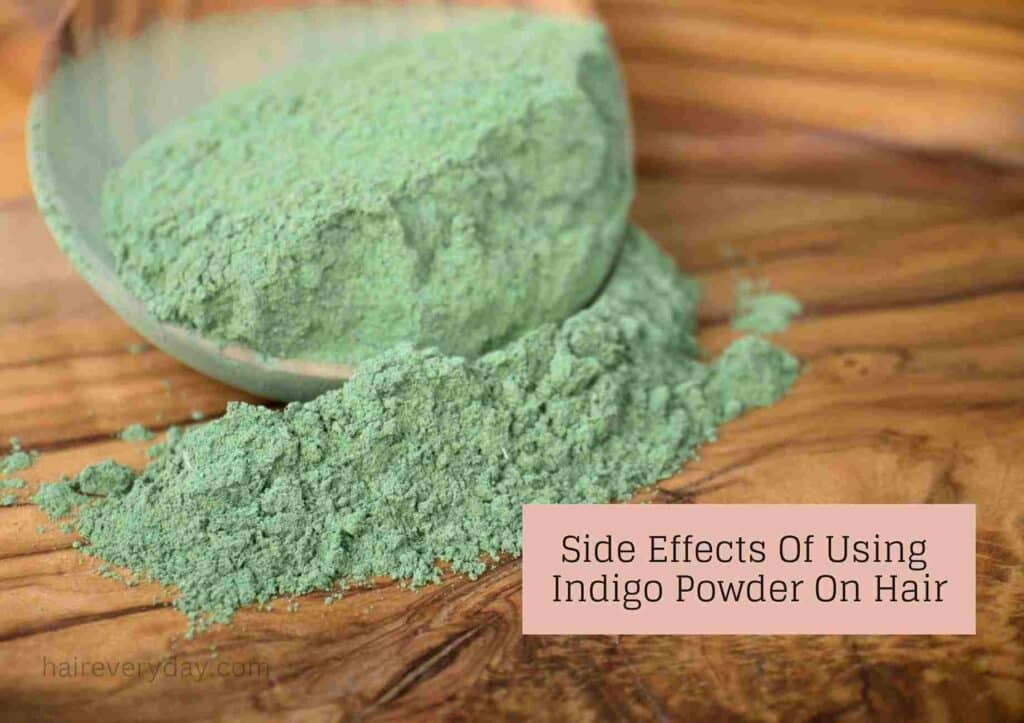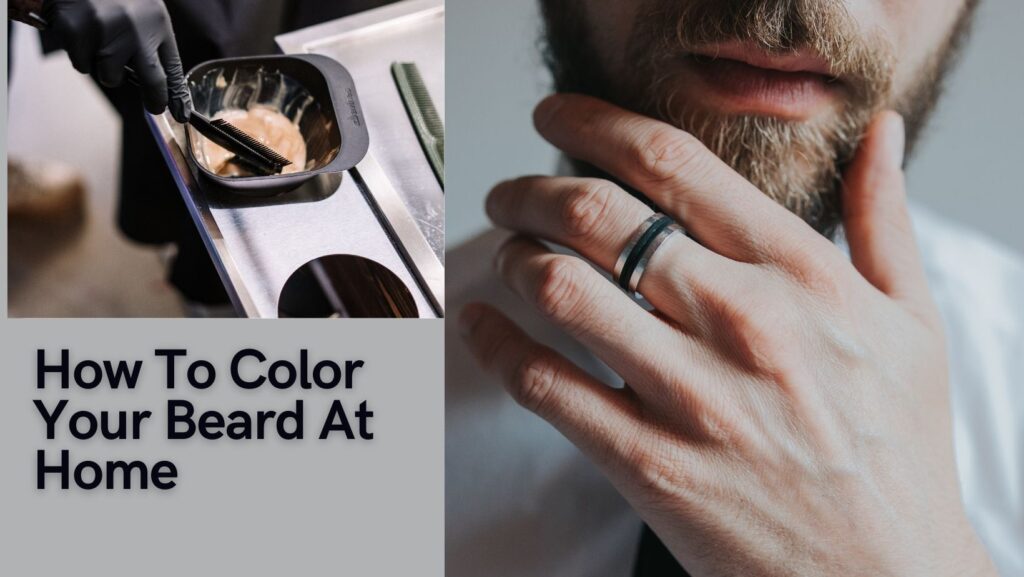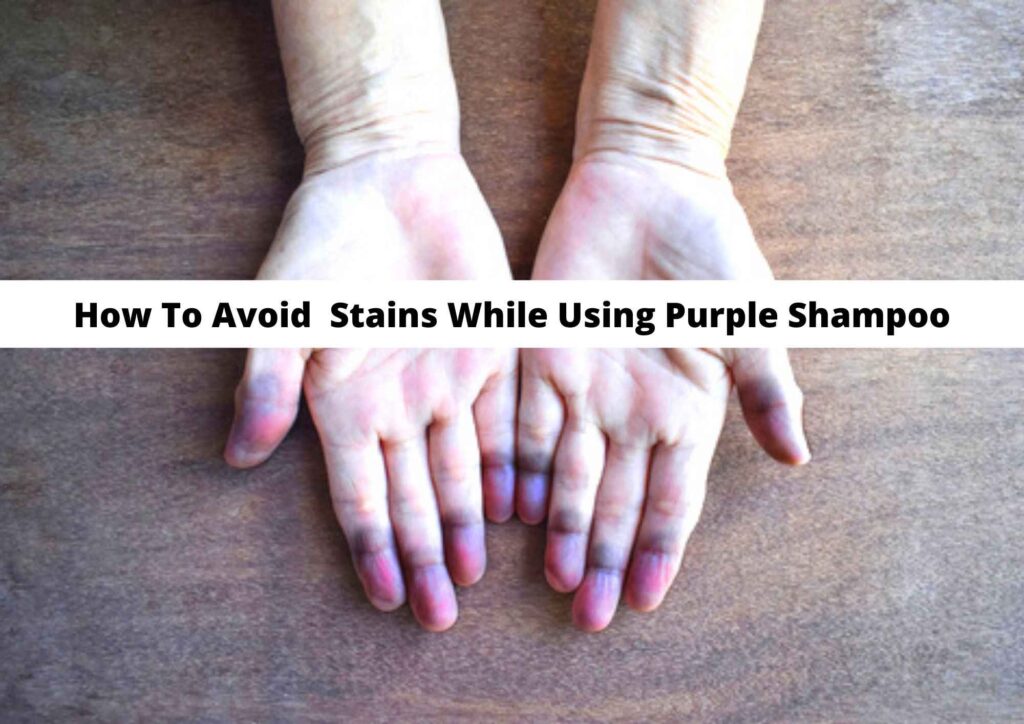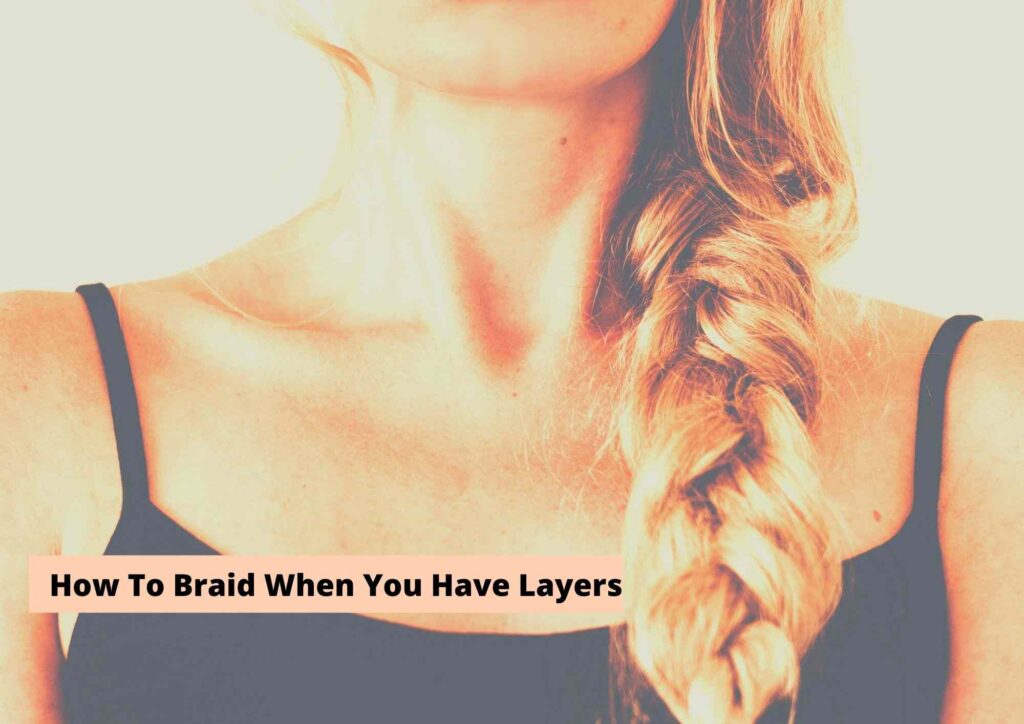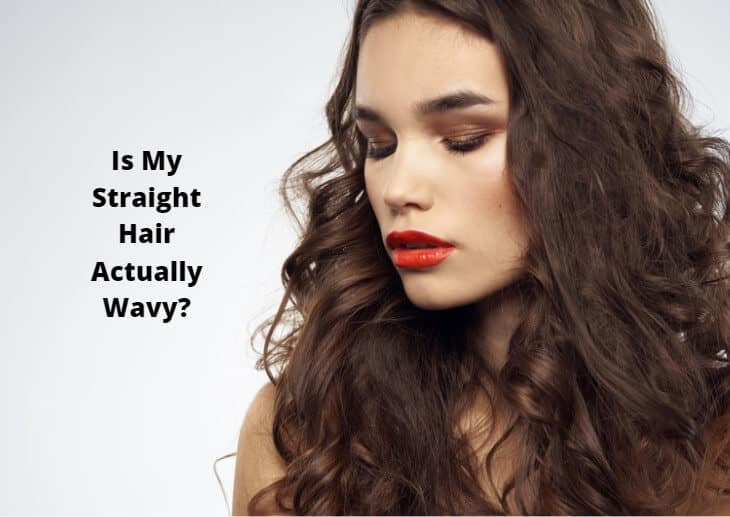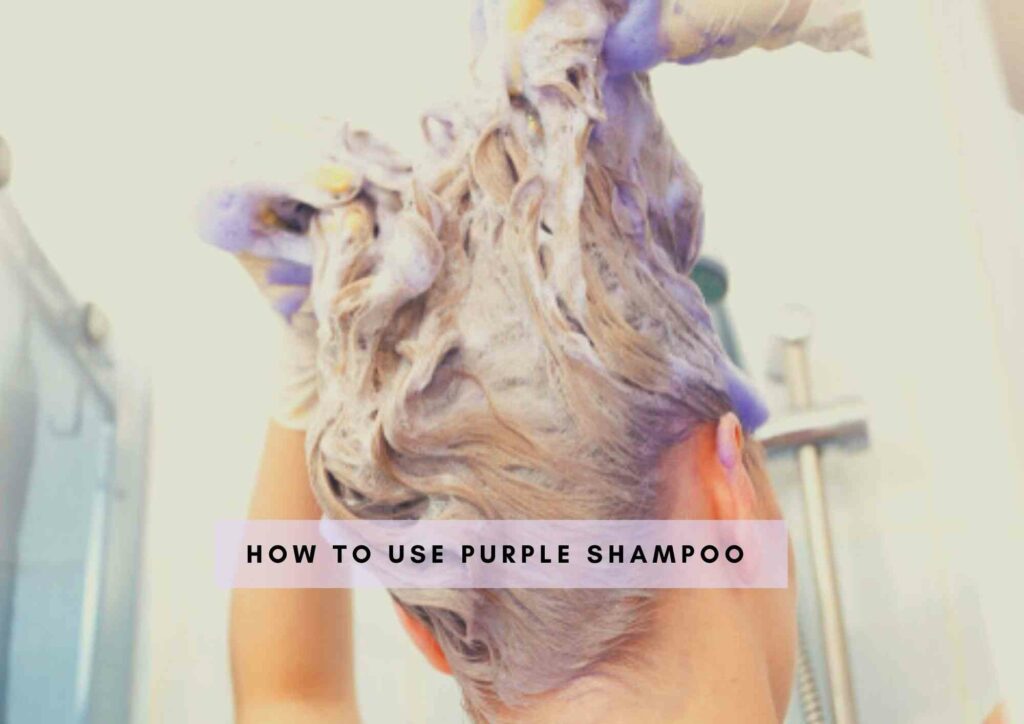Discover potential side effects of using indigo powder on hair: “Side Effects Of Using Indigo Powder On Hair.” Our comprehensive guide delves into the risks and precautions of using indigo powder as a natural hair dye. Uncover how indigo may affect your hair health and what safety measures to consider before application. Make informed choices for your hair coloring journey with our expert insights on the possible effects of using indigo powder on your hair.
Indigo powder has gained popularity as a natural hair dye alternative, but are you aware of its potential side effects?
This article will delve into the mysteries surrounding indigo powder, exploring its connection to gray hair, its safety without henna, and even the controversial question of whether it causes cancer.
Discover what indigo powder hair dye is, how it differs from henna, and the correct way to apply it.
Unlock the secrets of this ancient hair remedy and uncover its top benefits.
Prepare to be fascinated and informed as I explore the 7 important side effects of using indigo powder on hair.
Important Side Effects Of Using Indigo Powder On Hair
Tweeting this out because I had so much trouble finding example pics when I was looking; this is how #indigo #henna hair dye turned out in my dirty blonde hair. It actually is blue, not black! (A lil green, but my application wasn't 100% even lmao) pic.twitter.com/snYLvG6Z88
— Sari / susuhina (@susuhina_rekt) November 15, 2020
One of the most important aspects of using indigo powder on hair is being aware of its potential side effects.
While indigo powder has gained popularity as a natural hair dye alternative, it is essential to understand the consequences it may have on your hair. Here are 7 important side effects to consider before using indigo powder on your hair:
1. Scalp irritation: Some individuals may experience scalp irritation when using indigo powder, leading to itchiness and discomfort.
2. Allergic reactions: Indigo powder can cause allergic reactions in some people, resulting in redness, swelling, and rashes.
3. Dryness and brittleness: The use of indigo powder may lead to dry and brittle hair, as it can strip the natural oils from the hair strands.
4. Difficulty in achieving desired color: Indigo powder can be unpredictable when it comes to achieving the desired color, especially if used without henna.
5. Difficulty in washing out: Indigo powder can be challenging to remove from the hair, making it difficult to switch to a different hair color or dye.
6. Hair texture changes: Some individuals may notice changes in their hair texture after using indigo powder, such as increased frizz or roughness.
7. Patchy or uneven dye application: Improper application of indigo powder may result in patchy or uneven color distribution, leading to an unsatisfactory outcome.
It is crucial to understand these potential side effects and weigh them against the benefits before deciding to use indigo powder on your hair. Always perform a patch test and consult a professional if you have any concerns.
What Is Indigo Powder Hair Dye
Indigo powder hair dye is a natural alternative to synthetic hair dyes that is derived from the leaves of the indigo plant.
It has been used for centuries in various cultures for its ability to impart a deep, dark blue color to the hair. Indigo powder is often mixed with other natural ingredients such as henna to create different shades and tones.
What sets indigo powder apart from henna is its ability to provide more intense and long-lasting color. While henna primarily imparts a reddish-orange hue, indigo powder offers a cooler and more vibrant blue shade.
It is important to note that indigo powder hair dye should not be used on its own. It is typically used in combination with henna to achieve the desired color.
The powder is mixed with water to form a paste, which is then applied to the hair. The longer the paste is left on the hair, the darker the resulting color will be.
Before using indigo powder on your hair, it is essential to be aware of its potential side effects and perform a patch test. While indigo powder is generally considered safe, it can cause scalp irritation, allergic reactions, and dryness and brittleness in some individuals.
In conclusion, indigo powder hair dye is a natural alternative to synthetic hair dyes that provides a vibrant blue color to the hair. It should be used in combination with henna and caution should be taken to avoid potential side effects.
Related: Side Effects Of Applying Lemon On Scalp
Related: Side Effects Of Using Clove Water On Hair
Is Indigo Powder Same As Henna Hair Dye
Indigo powder and henna hair dye are often used in combination to achieve different hair shades and tones.
While they have similarities, they are not the same. Indigo powder, derived from the leaves of the indigo plant, provides a vibrant blue color to the hair. On the other hand, henna primarily imparts a reddish-orange hue.
The main difference lies in the colors they produce. Indigo powder offers a cooler and more intense blue shade, while henna provides a warm and reddish-orange tone. Another difference is their longevity. Indigo powder tends to provide a longer-lasting color compared to henna.
It is important to note that indigo powder should not be used on its own and is typically mixed with henna to achieve the desired color.
Before using either indigo powder or henna on your hair, it is crucial to be aware of their potential side effects and perform a patch test to ensure compatibility.
So, while indigo powder and henna share some similarities, they differ in the colors they produce and the duration of the color.
How To Apply And Use Indigo Powder For Hair

To effectively apply and use indigo powder for hair, follow these simple steps. Start by preparing the indigo powder hair dye mixture.
In a bowl, mix the desired amount of indigo powder with warm water to form a smooth paste. Let the mixture sit for about 15 minutes to allow the color to develop.
Before applying the indigo paste, wash your hair with a clarifying shampoo to remove any buildup or oils. Towel-dry your hair until it is slightly damp. Apply a thin layer of petroleum jelly along your hairline and ears to protect the skin from staining.
Divide your hair into manageable sections and apply the indigo paste evenly, starting from the roots and working your way to the ends. Use a hair dye brush or your fingers to ensure thorough coverage. Make sure to saturate each strand for even color distribution.
Cover your hair with a shower cap or plastic wrap and let the indigo paste sit for the recommended time mentioned in the instructions. This is usually between 1 to 3 hours, depending on the desired intensity of color.
After the recommended time has passed, rinse the indigo dye out of your hair with lukewarm water until the water runs clear. Avoid using shampoo during this rinse, as it may strip away the color. Finish off with a conditioner to keep your hair moisturized.
Allow your hair to air dry or use a diffuser on a low heat setting to avoid heat damage. Once dry, you can style your hair as desired and enjoy the vibrant, long-lasting color provided by indigo powder hair dye.
Remember to perform a patch test before using indigo powder on your hair to check for any potential allergic reactions. If you have any concerns about using indigo powder, it is always best to consult a professional hair stylist for guidance.
so my indigo hair color faded after taking a bath and turned out like this. i finally achieved grey????? oh my god????? 😭💞 pic.twitter.com/gSZZ0xVHLz
— . (@sangitsirene) November 21, 2020
Does Indigo Powder Increases Grey Hair
Indigo powder has been widely used as a natural hair dye for centuries, known for its ability to impart a deep and vibrant blue color to the hair. However, there is no scientific evidence to suggest that indigo powder increases gray hair.
Gray hair is primarily caused by a loss of pigment in the hair follicles, which is a natural part of the aging process. Indigo powder, on the other hand, works by depositing color onto the hair shaft, covering up any existing gray hair. It does not have any direct impact on the production or growth of gray hair.
If you are looking to cover up your gray hair with indigo powder, it is important to follow the recommended application instructions and perform a patch test to check for any potential allergies or adverse reactions.
Additionally, consulting a professional hair stylist can provide you with expert guidance and ensure that the application is done correctly for the best results.
Is Using Indigo Hair Dye Without Henna Safe For Hair
Using indigo hair dye without henna can be safe for hair if proper precautions are taken. Indigo powder, derived from the indigo plant, provides a vibrant blue color to the hair.
While henna primarily imparts a reddish-orange hue, indigo offers a cooler and more intense blue shade.
Although indigo powder can be used on its own, it is often mixed with henna to achieve the desired color.
It is important to note that indigo powder may cause scalp irritation, allergic reactions, and dryness and brittleness in some individuals. Therefore, performing a patch test prior to use is essential to check for any potential allergic reactions.
To ensure the best results and minimize the risk of side effects, it is recommended to consult a professional hair stylist who can guide you on the appropriate application technique and provide expert advice.
By taking these precautions, you can safely use indigo hair dye without henna to achieve a vibrant and long-lasting blue color.
Does Indigo Powder Cause Cancer
Based on current scientific research, there is no evidence to suggest that indigo powder causes cancer. Indigo powder, derived from the leaves of the indigo plant, is commonly used as a natural hair dye to achieve a vibrant blue color.
While there have been concerns about the safety of hair dyes, including indigo powder, studies have not found a direct link between indigo powder and the development of cancer.
It is important to note that the safety of any product, including indigo powder, can vary depending on individual sensitivities and allergies.
Some individuals may experience scalp irritation or allergic reactions when using indigo powder. Performing a patch test before application is recommended to check for any potential adverse reactions.
To ensure the best results and minimize any potential risks, seeking guidance from a professional hair stylist is advisable. They can provide expert advice on the proper use and application of indigo powder for safe and effective results.
Top Benefits Of Indigo Powder For Hair
Indigo powder offers a multitude of benefits for hair, making it a popular choice for those seeking vibrant and long-lasting color. Here are five top benefits of using indigo powder for hair:
1. Natural and Chemical-Free: Indigo powder is derived from the leaves of the indigo plant, making it a natural and chemical-free alternative to synthetic hair dyes. This means it is gentle on the hair and scalp, reducing the risk of irritation and damage.
2. Deep and Vibrant Color: Indigo powder provides a rich and intense blue color to the hair, creating a bold and unique look. It can be used on its own or mixed with henna to achieve various shades of blue, from subtle highlights to dramatic color transformations.
3. Long-Lasting Results: Unlike some temporary hair dyes, indigo powder offers long-lasting color. It penetrates the hair shaft, ensuring that the color stays vibrant and fades gradually over time, giving you a stunning look that lasts.
4. Covers Gray Hair: Indigo powder effectively covers up gray hair, providing a natural-looking color. It coats the gray strands, blending them seamlessly with the rest of the hair, without causing any damage or affecting the growth of future gray hair.
5. Conditions and Strengthens Hair: Indigo powder not only adds color to the hair but also strengthens and conditions it. It helps improve hair texture, making it smoother, shinier, and more manageable. This natural ingredient nourishes the hair, promoting overall hair health.
By harnessing the benefits of indigo powder, you can achieve vibrant and beautiful hair color while keeping your hair healthy and chemical-free.
To sum it all up…
In conclusion, while indigo powder has been praised for its benefits in hair care, it is essential to be aware of its potential side effects.
Indigo powder hair dye, although different from henna hair dye, can still cause adverse reactions such as scalp irritation and allergic reactions.
Additionally, using indigo hair dye without henna may not provide the desired results and could lead to disappointment.
Recent studies have also raised concerns about whether indigo powder may be linked to an increased risk of cancer.
Therefore, it is crucial to weigh the pros and cons before incorporating indigo powder into your hair care routine, and consult with a professional if you have any doubts or concerns.
Why You Should Trust Haireveryday?
The author of this article, Leah Marie Priest has a degree in Cosmetology with years of experience in dealing with hair care, scalp care, and hairstyling. As someone who extensively deals with all kinds of hair textures, products, styling methods and more, hair Leah Marie knows what kind of products and procedures suit each hair type and person. We have also tested these hair products and processes ourselves to provide you an unbiased review about every product. Each of our articles are also reviewed by a team of medical professionals so that you get the most accurate and expert-reviewed information.
Also Read:
What Is The Correct Henna And Indigo Mix Ratio
How To Mix Henna And Indigo Together For Black Hair
To Summarize

